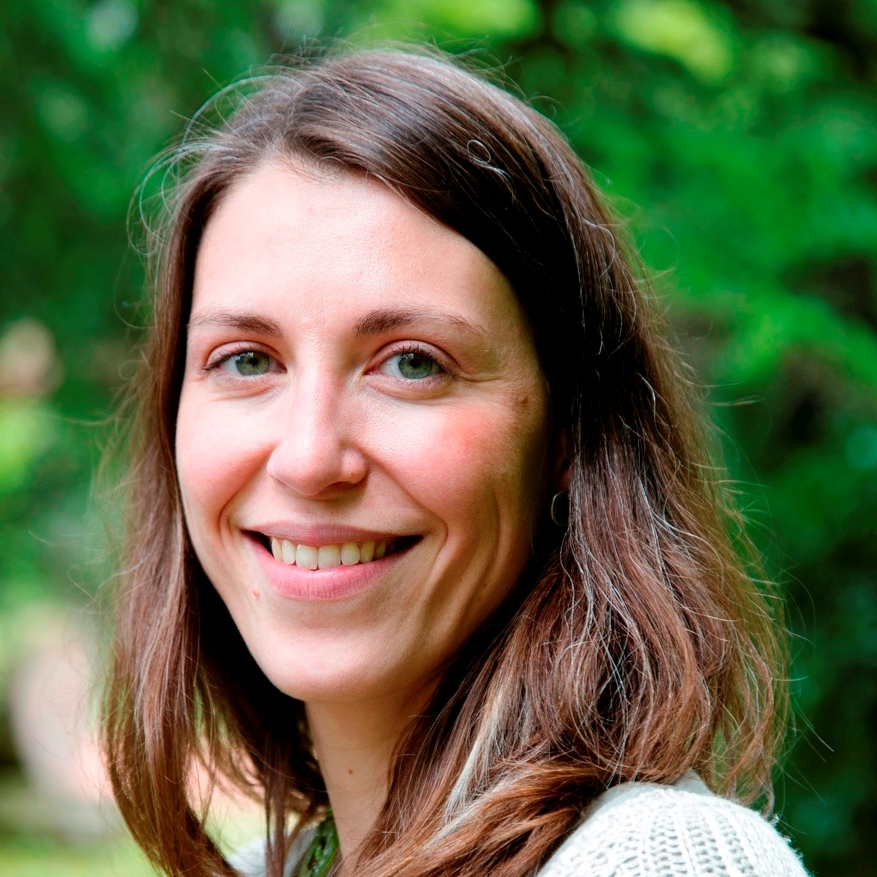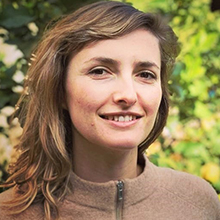HELIX
Novel tools for integrating early-life environmental exposures and child health across Europe

- Duración
- 2013-2017
- Coordinador
- Martine Vrijheid (ISGlobal)
- Financiadores
- Comisión Europea. Seventh Framework Programme
- Página web
- http://www.projecthelix.eu
Due to our ever changing environment and habits, exposure to environmental contaminants is growing increasingly complex. The totality of environmental (non-genetic) exposures from conception until old age is defined as the ‘exposome’. The HELIX ‘early-life exposome’ approach involves combining all environmental hazards that mothers and children are exposed to, and linking this to the health, growth and development of children.
Pregnancy and the early years of life are well recognized to be periods of high susceptibility to environmental damage with lifetime consequences. Characterisation of the exposome in early life can provide very effective tools for disease prevention, given that interventions at that time can reshape biological programming and shift the body’s developmental track to the normal function. This makes early life an important starting point for development of the exposome.
The results of the project will help us to better understand how various types of exposures combine to influence our risk of disease.
The project will develop a comprehensive set of high-tech tools, methods and prospective data to measure and integrate the chemical, physical and molecular environment and link this to health of children. Smart phones are used to measure air pollution, UV radiation, physical activity and noise exposure. The latest laboratory techniques is used to measure biological indicators of many chemical exposures including contaminants in food, consumer products and water. In all, HELIX will collect full exposome data from 1,200 mothers and their children, the largest study to do this.
To achieve this, HELIX uses six existing, prospective birth cohort studies in Europe (BiB, EDEN, INMA, KANC, MoBa, Rhea). These cohorts have already collected large amounts of data as part of national and EU-funded projects. Results will be integrated with Europe-wide data to estimate health impacts at the larger European scale.
HELIX is funded by the EU and will receive €8.6 million over the course of five years. The project comprises of thirteen European partners, including two SMEs.
Related blog posts
Endocrine Disruptors—What Do They Disrupt?
The Exposome: Understanding the Effect of the Environment on Our Health
Nuestro equipo
Investigador principal (IP)
-
 Martine Vrijheid Research Professor y directora del Programa de Medio ambiente y salud a lo largo de la vida
Martine Vrijheid Research Professor y directora del Programa de Medio ambiente y salud a lo largo de la vida
Equipo ISGlobal
-
 JOSE BARRERA Estadístico
JOSE BARRERA Estadístico -
 Xavier Basagaña Research Professor
Xavier Basagaña Research Professor -
 MARIONA BUSTAMANTE Staff Scientist
MARIONA BUSTAMANTE Staff Scientist -
Maria Isabel Casas Sanahuja
-
 Montserrat de Castro Técnica GIS
Montserrat de Castro Técnica GIS -
Diana Clemente Investigadora predoctoral
Otros proyectos
Ver proyectos pasadosATHLETE
Advancing Tools for Human Early Lifecourse Exposome Research and Translation
MCC-Spain
Estudio multi-caso control poblacional, incluyendo tumores de alta incidencia en España
Proyecto INMA - Infancia y Medio Ambiente
EGG/EAGLE
Early Genetics Growth/Early Genetics and Lifecourse Epidemiology
PACE
Pregnancy and Childhood Epigenetics
LIFECYCLE
Early-life stressors and LifeCycle health
OMEGA-NET
Network on the Coordination and Harmonisation of European Occupational Cohorts
BiSC (Barcelona Life Study Cohort)
HARMONIC
Health effects of cArdiac fluoRoscopy and mOdern radIotherapy in paediatriCs
Mobilise-D
Connecting digital mobility assessment to clinical outcomes for regulatory and clinical endorsement
EARLY-ADAPT
Signs of Early Adaptation to Climate Change
COVICAT
Cohorte Covid-19 en Cataluña
CONTENT
Cohorte de COVID-19 en España: dinámica social, salud mental y desigualdades
EUCAN-Connect
A federated FAIR platform enabling large-scale analysis of high-value cohort data connecting Europe and Canada in personalized health
OBERON
An integrative strategy of testing systems for identification of EDs related to metabolic disorders
EXPANSE
EXposome Powered tools for healthy living in urbAN SEttings
AURORA 2021
Actionable eUropean ROadmap for early-life health Risk Assessment of micro- and nanoplastics
ONES
Fine Particle Matter, Fetal Growth, and Neurodevelopment: Examining Critical Windows of Susceptibility
AIR-NB
Pre-natal exposure to urban AIR pollution and pre- and post-Natal Brain development
El impacto de la exposición al metaboloma de esteroides materno-fetales en el crecimiento infantil y los resultados neurológicos (IGRO)
Project Code: PI21/01269
NutinBrain
The role of seafood and nut consumption on human neurodevelopment from pregnancy to adolescence
ALTER - Contaminación del aire, microbiota intestinal y neurodesarrollo en los primeros 24 meses de vida
Project Code: PI21/01278
Alimentación S2: por una dieta saludable y sostenible
Estudio sobre la exposición a nano y microplásticos a través del agua de consumo de Barcelona
¿Es mejor consumir el agua de grifo si queremos reducir la exposición a nano/micropláticos?
UrbanKids
Urban and social environment and childhood obesity – a natural moving2health experiment
Laboratorio Ciudadano de Salud Urbana
Planificación urbana, medio ambiente y salud
Characterizing Oral Exposure to Nanoplastics and Microplastics
Characterization of Oral NMP Exposure
iGenCO
In-Depth Genomics and Cross-Omics Analysis for Undiagnosed Rare Diseases on a User-Friendly Collaborative Platform
5G expOsure, causaL effects, and rIsk perception through citizen engAgemenT
GOLIAT
CityExposomeCat
An Exposome Approach to Urban Health: Individualized Environmental Exposure Assessment in an Adults Population Cohort Study (GCAT)
TwinAir
Digital Twins Enabled Indoor Air Quality Management for Healthy Living
Subclinical Infections in Children and Long Term Health Effects
Infection acquisition in early life and health outcomes in childhood - MARATO TV3
UBDPOLICY
The Urban Burden of Disease Estimation for POLICY Making
Exposición prenatal a sustancias poli y perfluoradas en agua de consumo y neurodesarrollo en el inicio de la vida
Project Code: PI20/00829
Base genética materna y fetal de la función placentaria
Project Code: PI20/01116
TOLIFE
Combining Artificial Intelligence and smart sensing TOward better management and improved quality of LIFE in chronic obstructive pulmonary disease
BWater
Drinking Water in Barcelona: Sustainability and Health Impact Assessment
CUPID
intoDBP
Innovative Tools to Control Organic Matter and Disinfection Byproducts in Drinking Water
FINDOOR
FTIR spectroscopy for real-time detection of bacterial outbreaks and the rapid identification of pathogenic serotypes, relapsing infections and antibiotic resistance
OccRF-Health
Occupational exposure to radiofrequency electromagnetic fields: From exposure assessment to study of health in workers and their offspring
EPHOR
Exposome Project for Health and Occupational Research
EXPONIT
Analysing and studying how night shift work affects workers' circadian rhythms and health
IHEN
International Human Exposome Network
El microbioma intestinal y la disrupción circadiana
Un estudio epidemiológico molecular sobre enfermedades cardiometabólicas y salud mental
B-Triage
Una prueba en el punto de atención para la estratificación del riesgo de los pacientes febriles basada en los niveles de sTREM-1
e-QuoL
e-health tools to promote Equality in Quality of Life for childhood to young adulthood cancer patients, survivors and their families
AM-MENTAL
¿Cómo afecta a tu salud mental que tu jefe o jefa sea un algoritmo?








